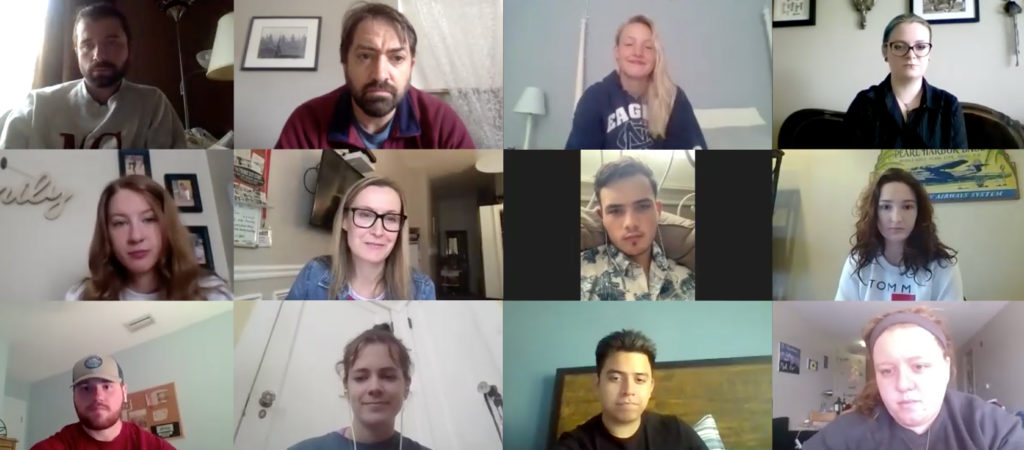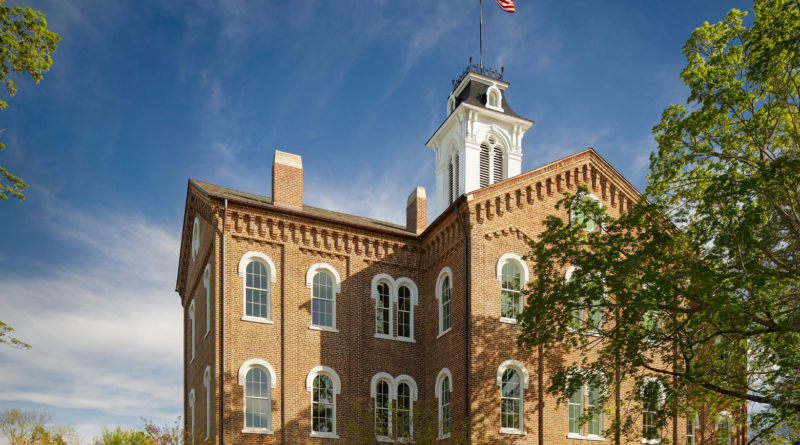Maryville College responds to COVID-19
On Wednesday, March 11, 2020, the students, faculty, and staff of Maryville College received one of their first COVID-19 related email memorandums from Dr. Tom Bogart entitled “Campus Response to COVID-19” less than a week before spring break was meant to start.
This particular email encouraged students to take precautions such as “practice good hygiene and stay home if you get sick,” while it also encouraged campus residents to take anything (electronics, textbooks, notebooks, etc.) home with them over break that would be needed if classes had to be moved online. Meanwhile, college administrators were keeping an eye on all things virus related daily.
Then came Friday, March 13, and Maryville College students, faculty, and staff received word via another email that spring break, previously set to begin March 14 and last one week through March 22, had now been extended by an additional week due to COVID-19. Students were also told that all spring sports, including conferences and competitions, were now cancelled. Of course, it was recommended that students cancel any non-essential travel plans.
At this point, the highly contagious virus had been rapidly spreading across America, causing many businesses, schools, and universities alike to shut down or move online for what would be an unknown period of time.
By Wednesday, March 18, students and faculty then found out that all courses were to be moved online for the rest of the semester, and distance education would begin Monday, March 30. This plan to move online came as many other institutions did the same, all presumably complying to President Trump’s Coronavirus Guidelines for America and other guidance from the Centers for Disease Control (CDC).
Having extended spring break, the new semester end date became Wednesday, April 29 rather than Wednesday, April 22. Study day is now April 30, while final exams will be held Friday, May 1, through Wednesday, May 6.
As this announcement came and spring break progressed, students and faculty alike were presumably wondering how moving everything online would pan out, especially with Maryville College being an institution that places great emphasis on the benefits of in person education. Vice President and Dean of the College, Dr. Daniel Klingensmith has provided some insight as to how it all went.
“Because moving from a program that is completely oriented towards in person education to online education in a week would be really difficult, we decided to extend spring break,” Klingensmith said. “In two weeks, it was also really difficult. UT actually did it in a week, so their faculty got no rest over spring break. Typically, spring break comes at a point in which everybody’s already tired.”
“It was easier on everybody so that they could catch their breath and really get things together,” Klingensmith said. “We think doing so created a better experience. We wanted to take a little bit more time and get it right as far as we could. At the point in which we were making these choices, a lot of stuff was really unclear, so we bought ourselves a little bit of time.”
In an effort to see how things were going and to find out what could be improved shortly, a survey was sent out to students around the end of the first week of distance education.
It included three questions:
What is going well?
What are the challenges?
What do you miss about Maryville College?
“The following Monday we had a great big faculty zoom meeting with most of the faculty there and talked about the results of the survey,” Klingensmith said. “It was really nice to see the stuff about what people missed about Maryville college, but mostly we talked about the challenges.”
It was found that there are two main challenges students face with distance education: engagement and technology access.
“[There are] people who, to some extent, get their motivation from being on campus, being with their friends, and being in a structured environment,” Klingensmith said. “I mean, there really is a reason why we have in person education even though the internet has been around for years.”
“For some students for whom the principal issue is engagement, not necessarily all of them but some of them, having a class that meets ideally at the same time that their on campus class would meet [works for them] and at least they can see their classmates,” Klingensmith said. This way, students can find a sense of structure and hopefully motivation to do their work.
For students that cannot attend synchronous online classes or Zoom video calls, many professors have taken to making class content available asynchronously or are avoiding much synchronous content in the first place.

such as Dr. Aaron Astor’s history course.
Photo Courtesy of MC Communications
“That one survey provided a lot of useful feedback, and we want to follow up at the end of the semester with a second one basically asking the same questions after people have had time to reflect on it,” Klingensmith said.
As the MC community looks forward to the end of this semester, it’s worth noting the 2020 graduating class will no longer be experiencing commencement in May, as doing so would be nearly impossible at the moment and a direct violation of social distancing.
On Tuesday, April 21, an email memorandum was sent out to inform students and faculty of the alternative graduation plans. First, a virtual “Commencement/Senior Celebration Ceremony for the class of 2020” will be released on the Maryville College website my 3:30 p.m. local time on Saturday, May 9 and will feature a slideshow of class members. Then, the college will hold the regular Baccalaureate and Commencement exercises come Dec. 19, 2020, located in the Ronald and Lynda Nutt Theatre of the Clayton Center.
By now, COVID-19 has truly impacted the Maryville College community, and we can only hope that it will not affect the upcoming fall semester nearly as much. Rest assured though, college administrators are and will continue to monitor the situation and all things surrounding the virus. As of now, they are discussing possible plans and options, so as to have them ready if need be.
“We are looking at different scenarios about what the fall will look like, but we’re not yet at a point in which we can say ‘oh okay, we know by August it will be like this,” Klingensmith said. “We don’t know whether everything will be good to go, and we’ll just be back to where things were on March 13, no problem”
“That’s one end of the spectrum, which I think everybody would like. At the other end of the spectrum, it’s still a complete public health emergency and we have to continue to stay online,” Klingensmith said. “We’re looking at a bunch of different scenarios and trying to plan. I think as the summer wears on we’ll have more evidence and a better sense of where we are.”
As we all move onward and upward, remember that quarantine won’t last forever. Stay safe, stay home, and wash your hands, but try to have some fun while you’re at it!

